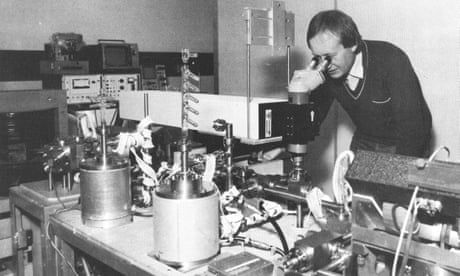
Geochemist who jointly invented a method of radioactive dating used on rock samples brought back from the moon
The argon-40/argon-39 method of radioactive dating, invented by Grenville Turner and his American colleague Craig Merrihue in the mid-1960s, provided the technique to precisely date the tiny but irreplaceable rock samples brought back by the astronauts of the Apollo moon-landing programme. Turner, who has died aged 87 from a brain tumour, pioneered the method prior to becoming one of the few British scientists to be employed by Nasa as a principal investigator on the Apollo programme.
Argon-40/argon-39 dating is similar to an earlier technique called potassium/argon dating. In volcanic rocks and minerals any of the isotope potassium-40 (the parent isotope) that is present decays over time to the isotope argon-40 (the daughter isotope). Measuring the amounts and ratios of each allows geologists to calculate the age of the rock sample. However, the process was somewhat cumbersome.
Continue reading...